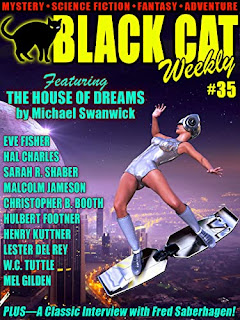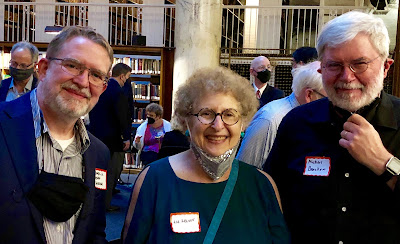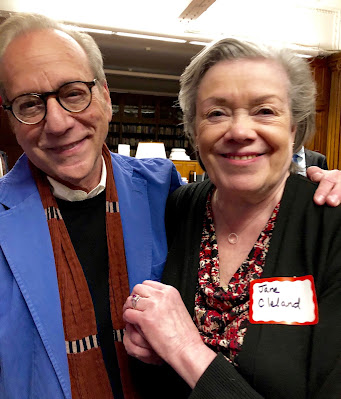 |
Dr. John Torres |
In the world of make-believe, you always get a scene of the lone doctor performing CPR to save the life of the patient. In real life, in a hospital setting, a coding patient is swarmed with doctors, nurses, and technicians, each of whom are performing one disparate task to keep that patient alive. Hospital staffers are required to retrain for CPR on a regular basis, because we don’t do it all. We work as a team. If we didn’t retrain often, we’re liable to forget the critical flow of CPR.
A few other gaffes from fiction that docs alone are likely to notice:
If your private eye takes a bullet to the shoulder, chances are the scene is over, and so is their career. The shoulder is awfully close to important blood vessels, the lungs, and nerves. The bones leading from the clavicles to the arms are fragile. A bullet would so shatter them that it would be impossible to keep fighting the bad guy. If you want to sink a bullet into your hero, put it in the outer thigh. There’s nothing truly life threatening there, as long as you miss the bone.
Avoid having your hero save the day with a tourniquet fashioned from a leather belt they whip off their waists. The key to a good tourniquet is flexibility. You need to be able to twist it tighter as that becomes necessary. And you won’t get many twists from a nice leather belt. Better to use a scarf, tie, or the shirt off your back, with a sturdy stick or tool to act as a windlass (i.e., the “handle” part that twists).
When in doubt, give your doctor heroes more paperwork. As much paperwork as you would heap upon hapless police detectives in your fiction. In fact, give your doctors some of mine! In the old TV show, ER, George Clooney would saunter off into the sunset at the end of the day, to carry on the important work of being dashing. That drove me crazy! Staying late to do paperwork was half my job!
You can never go wrong as a writer tossing crazy relatives into a medical scene. True story: A beautiful, eighteen-year-old girl showed up in our ER looking as if she’d overdosed on…something. The narcotics tests all came back negative. We finally determined that she’d attempted to end her life by swallowing a copious quantity of iron pills. In large doses iron is so toxic that it will obliterate your liver. If she hadn’t ended up in the ER, she would have died in 24 hours!
I found her parents in the waiting room. “I hate to tell you this,” I said, “but your daughter needs a liver transplant.”
“Will it leave a scar?” Mom wanted to know.
“You can’t do that!” Mom protested. “She’s a beauty pageant contestant. She’ll never be able to wear a bikini again!”
I couldn’t believe what I was hearing. I shot a look at Dad. “The question is, is she going to be alive?”
Mom started up again, but Dad shouted, “Shut up!”
I have no idea if the patient ever competed ever again, but I know she left our care alive.
 |
| Jimson weed seed pod. Photo by Olivia Haun on Unsplash |
Which reminds me: fictional doctors are always saving the day by pumping a patient’s stomach. We actually don’t pump that many stomachs because you don’t get much out. If the person has arrived in your ER, the toxin is most likely flowing in their bloodstream, not swimming in their digestive juices. Unfortunately, you must treat the overriding ailment.
In closing, let me share my foolproof, Dr. Disaster method for murdering someone. (This is offered for entertainment purposes only. Do not actually do this!) Recall that doctors often only check for poisons that they suspect, that they know about, that are common in their locality. My Colorado colleagues and I could always spot a jimson weed victim because we saw them every summer day. But if you lob a zebra at a doctor or medical examiner, you’ll stump them every time.
So here’s my crazy murder scenario. I keep waiting to see someone use it on TV or in a mystery novel. You’d get pufferfish toxin and add it to your enemy’s spray bottle of nasal decongestant during allergy season. I guarantee you that the vast majority of doctors in North America will not test for pufferfish toxin. Maybe the murderer is a disgraced doctor who’s now slumming as a sushi chef—or vice versa.
I shared this idea with my kids recently, both of whom are physicians themselves. They both shook their heads, perhaps wondering if I watched too much TV.
“But Dad, where are you going to get pufferfish toxin? It’s very difficult to extract.”
I shrugged. “Who cares? It’s fiction.”
 |
March 2021, a snowy day in Colorado when the hardcover copies first arrived. |





.jpg)
.jpg)






































